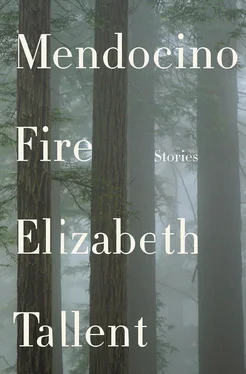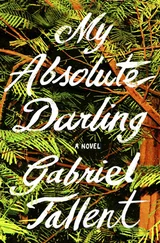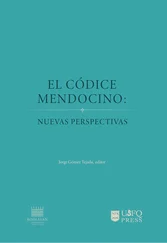She had screamed in church, and from then on, whenever he came out to the shed to see a new painting, he was no longer honest. Even now she misses his confrontational stance before a painting, his boxer’s glower, brow creased, chin down. He had held nothing back, and if the painting failed to change his life he blamed it, and he was right, she understood now, in the relentlessness of his extraordinary expectations he had been right, more than right, rare , because once one has ceased to be a child there is not nearly enough visceral loathing of complacency. It’s an aspect of their marriage that has come to seem, in retrospect, a treasure: the dictatorial rightness of his obsessiveness, his crazy conviction that she is a genius, or would be if she would only listen to him.
One night when the full moon and too much wine keep them awake after sex, the yoga instructor asks if he can see her work, and she can think of no real reason to say no. The good part of this is that while following him up the stairs she can admire the high rounded puckish symmetrical ascending cheeks of his ass, the cleft of their clean division curving in to the shadow where the scrotum, like some sad, worn, withered shaman’s bag he must carry everywhere, lolls between long-muscled thighs. Not that women think this way, she thinks, but this man is far more beautiful than Bruce, who was getting soft around the middle when she saw him last, whose wispy hairline exposed his temples, sharpening his air of braininess and worry, and why had she loved those qualities, why was he real to her, more real than anybody else? Down the length of the attic, in and out of shafts of moonlight, the bare-assed yoga instructor named Daniel drifts, and — sure that she is about to be lied to — she stands watching his easygoing unawareness, his innocent shambling failure to feel what he is feeling . He says some nice things and for the first time she grasps that he believes her to be obscure and a failure, that concealed within his attraction is the desire to rescue: to help her out . This boy! Help her! While the cat rubs his left ankle, Daniel asks, “One thing I don’t get.”
She gives him no encouragement. If he wants to say it, let him say it.
He says it. “Why paint the same thing over and over?”
More than a year later Bruce turns up, one hazy midsummer morning, in the form of a letter. Envelope, stamp, handwriting. A letter.
Hey X,
I’m hoping you won’t just rip this into little pieces.
I want to believe you can look back on what we had without pain, but you would say that like always I am imposing my version of how things should be, without asking you. For the pain I caused you, I would like your forgiveness. Please forgive me.
Occasionally somebody says you’re doing well out there and I’m glad. There are developments in my life, too. This is Robin holding Clem, who just said his first word. He had me wrapped around his finger from day one.
Listen X, make them treat you right out there in the Heart of Darkness and if you get back this way give me a call.
p. s. Happy 37th — be well.
She’s no expert at telling babies’ ages, but this one has to have been conceived long before they broke up. For months he had kept this secret. In those months she had kissed him, she had told him what she dreamed last night, she had done his laundry, she had confided her fears. He must not have known what to do; he must have been torn, hearing, under their domestic small talk, the ticking clock of his predicament. The baby wears the kind of ominous knit cap favored by perpetrators of muggings and assaults. She makes a halfhearted attempt to tear the picture in two, but it’s tough and flexible and destroying it would require scissors, and besides it’s as if this picture has infinite depths and she can’t see deeply enough, but that has to be shock. Disbelief, which causes this simple picture to seem strange. The baby’s expression — opaque, lordly, insolent, dire — suggests the laserbeam confidence of the utterly beloved. He has been caught in the middle of a lunge, resisting the arms that hold him.
It is degrading to have lost him to so white a face, pale to its barely-there lashes and with the pointy rat nose sometimes seen on the monochromatically fair. But the mouth! The mouth is done in lipstick of a carnal, crude, trashy red, a third-world mouth, a Cuban mouth, and Ximena can’t help wondering if the lover feels the need to mitigate her whiteness, if the ethnification of her mouth is owed to competitiveness with Ximena, about whom he must tell stories, feeling as he always has about Ximena’s life, that its tragedy rubbed off on him and persists even now as an aura, the tingling persistent glamour of violent death. Ximena packs, biting her lower lip as she shoves notebooks and BlackBerry and reading glasses into her messenger bag, needing at last to confront him, to tell him that his theft of her life, his lover’s theft of her mouth , has to stop, fifty miles of highway vanishing before she pulls over to dig out her cell, cancel her birthday dinner with Daniel, and ask can he feed Bad Cat while she’s gone? Sunk deep between walls of corn, the yellow line sucks toward an irresistible vanishing point.
Ximena paints moonscapes across which the lunar wind blows esoteric litter, a tumbling bowler hat, a black dress, glowing rubber balls, flying scraps of paper bearing scribbled handwriting. They don’t work for everyone, far from it, but her paintings are sought after, collected, given the minor awards that foretell greater awards in the future, deemed sufficiently interesting to justify lucrative visiting-artist stints and, out of the blue, the associate professorship at Iowa. No doubt her story plays a part, and the famous photograph. LIFE had caught her father, three days before his death, resting his bearded cheek against Ximena’s hair while she toyed with his watch. She remembers this photograph from inside. That is: the feelings whose outward expression makes this photo memorable — the feelings that cause anyone seeing it for the first time to pause — were her feelings. Or: half of them were hers, the other half her father’s. Usually undemonstrative, he had laid his cheek against her hair, his contentment in his child’s presence, contentment of the kind almost anyone can feel, combined with weariness almost beyond comprehension. The tiny deliberate steps that undid his wristwatch were the most intimate actions Ximena had then ever performed on or with another body, and she loved him for letting her do them. Without the watch his forearm was a rakishly black-haired length of wild creature, tendony, bony, full of authority and life force, capable of great quickness, of (she had sensed it even then) violence. A man’s arm, which she had set free. Ximena made the watch glide snakelike up her own thin arm, concentrating with a child’s rapture in sensation — which can appear in a photograph as mere reverie — on bringing time to a halt.
Her aunt, the older of two, a black-browed, haggard, natural-born martyr, led Ximena through a strange world of tin roofs and dusty alleys to the site of her father’s death. Across a wall of adobe bricks tottered gigantic letters in fresh paint, reds and blues and blacks unmediated, as yet, by dust. Wasps clambered in and out of the holes in the wall. Each emergent wasp, posing on the rim of a bullet hole, took an instant to compose itself. Witless witnesses to her father’s death, had they cowered inside their holes, or flown out enraged? Her father’s name reeled across the wall in letters whose haste suggested peril, but someone had run the risk. Once written, the name had been embellished, paid homage, annotated with signs and slogans. It was only a question of time before it would be found by obscurers and erasers of history; it was bound to be a brief-lived salute, but while it lasted it was as brave as paint could be, as loving and outraged as hands could contrive. Here was a language Ximena spoke. She needed to press against that paint, to wet her fingertips and leave an imprint of her own, but her hard aunt, seizing the thick tail of the girl’s hair, yanked her back.
Читать дальше












